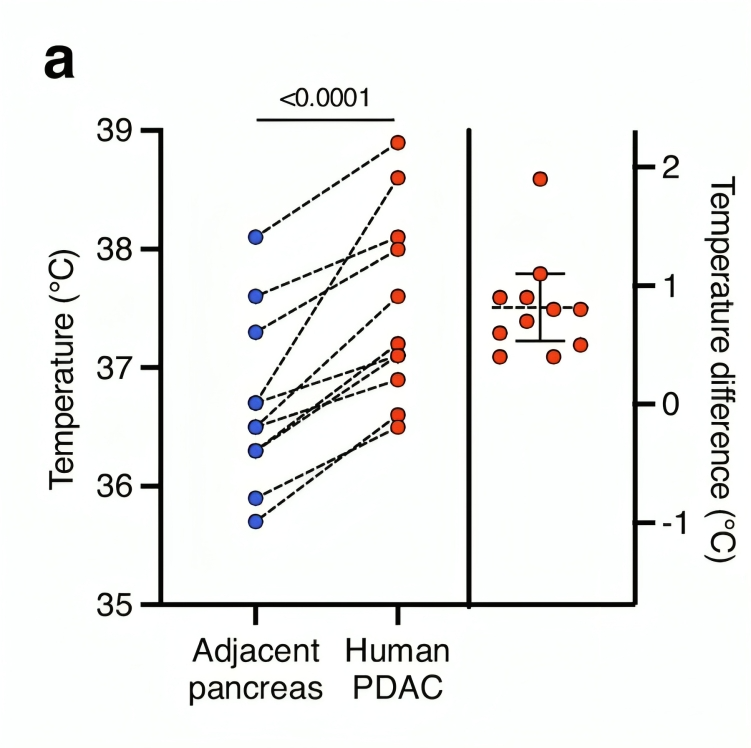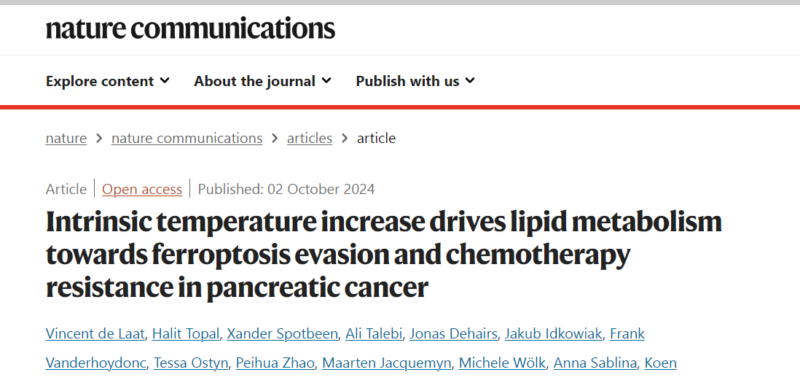
Intrinsic temperature increases ferroptosis evasion and chemotherapy resistance in Pancreatic Cancer, suggested by Anirban Maitra
Anirban Maitra shared a post on X:
“Fascinating!
Intrinsic temperature increase drives lipid metabolism towards ferroptosis evasion and chemotherapy resistance in Pancreatic Cancer. Pancreatic cancers have a higher “ambient” temperature than the surrounding uninvolved pancreas.
What are the metabolic consequences of this observation?”

Authors: Vincent de Laat, Halit Topal, Xander Spotbeen, Ali Talebi, Jonas Dehairs, Jakub Idkowiak, Frank Vanderhoydonc, Tessa Ostyn, Peihua Zhao, Maarten Jacquemyn, Michele Wölk, Anna Sablina, Koen Augustyns, Tom Vanden Berghe, Tania Roskams, Dirk Daelemans, Maria Fedorova, Baki Topal and Johannes V. Swinnen.

Source: Anirban Maitra/X
Dr. Anirban Maitra serves as Professor of Pathology and Translational Molecular Pathology at UT MD Anderson Cancer Center since August 2013, and directs the Sheikh Ahmed Pancreatic Cancer Research Center. He leads an NCI-funded laboratory dedicated to pancreatic cancer research, focusing on genetics and molecular pathology in human and mouse models. His research aims to advance early detection and interception strategies to enhance patient survival rates in pancreatic cancer.
-
Challenging the Status Quo in Colorectal Cancer 2024
December 6-8, 2024
-
ESMO 2024 Congress
September 13-17, 2024
-
ASCO Annual Meeting
May 30 - June 4, 2024
-
Yvonne Award 2024
May 31, 2024
-
OncoThon 2024, Online
Feb. 15, 2024
-
Global Summit on War & Cancer 2023, Online
Dec. 14-16, 2023
